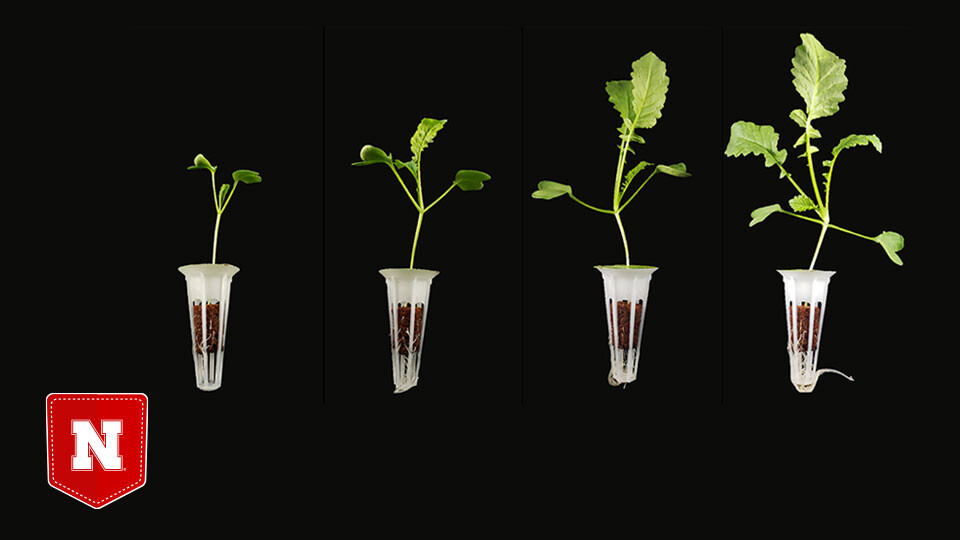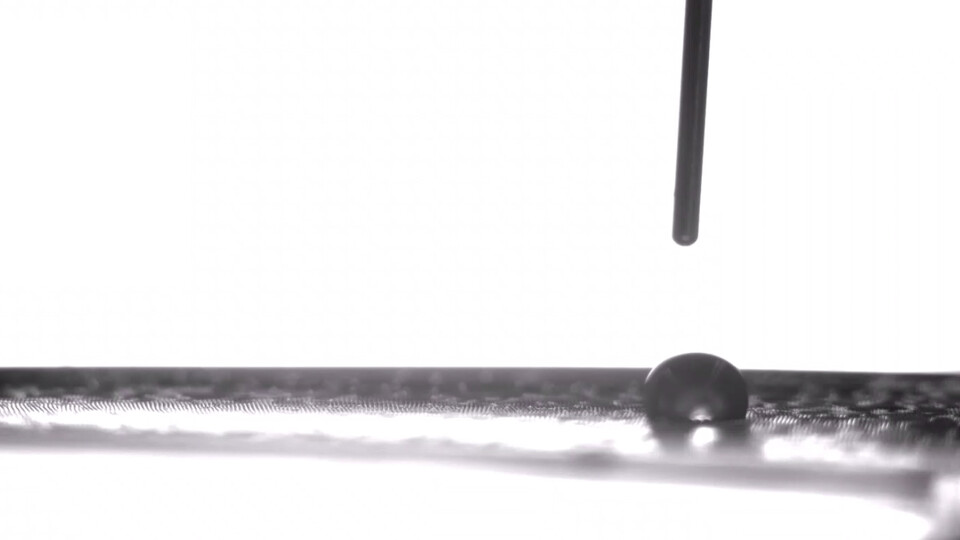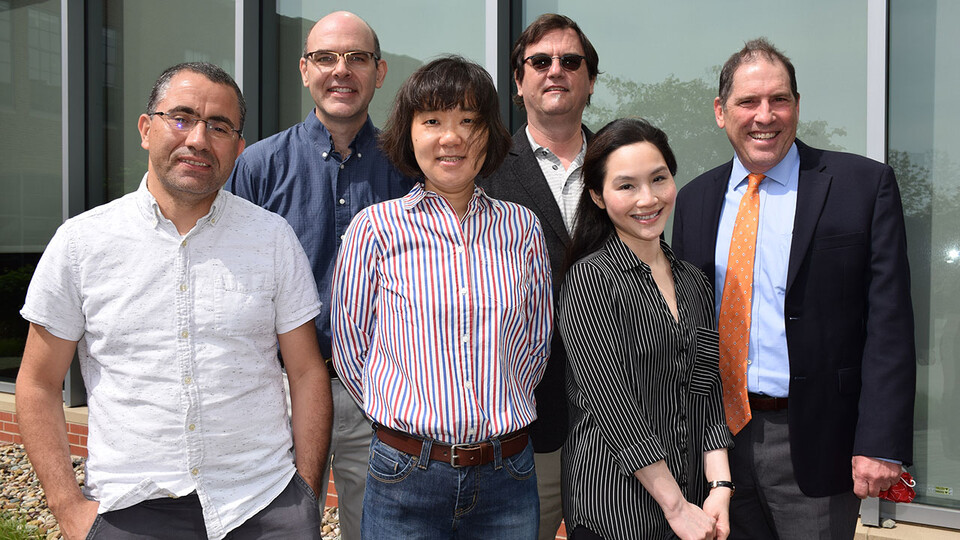
Hemp-based composite could facilitate soil-free farming
Nebraska chemist Barry Cheung and his colleagues recently introduced an approach that chemically couples a structure-granting component of hemp fibers, lignin, with “linking molecules” that fortify the resulting biocomposite. The team proceeded to grow both Daikon radishes and green peas from the biocomposite, a promising sign for its potential as a viable, eco-friendly growth medium.
Read More


Checco earns NIH research award
James Checco and his research group earned a Maximizing Investigators' Research Award (MIRA) for Early Stage Investigators (ESIs) from the National Institute of General Medical Sciences (NIGMS), part of the National Institutes of Health.
Read More
New technique acts as accelerator, brake for microscopic droplets
Professor Stephen Morin and doctoral candidate Ali Mazaltarim have demonstrated unprecedented control over the movement of liquid droplets on flat surfaces. That control could make the technique useful in self-cleaning materials, water harvesting and other applications. Their research has been published in Nature Communications.
Read More


NU receives $20 million grant to advance quantum research, education
The University of Nebraska has received a five-year, $20 million award from the National Science Foundation’s Established Program to Stimulate Competitive Research (EPSCoR) to create a research and education cluster aimed at enhancing the state’s competitiveness in the field of emergent quantum materials and technologies, and boosting the participating institutions’ research and education capacity.
Read More